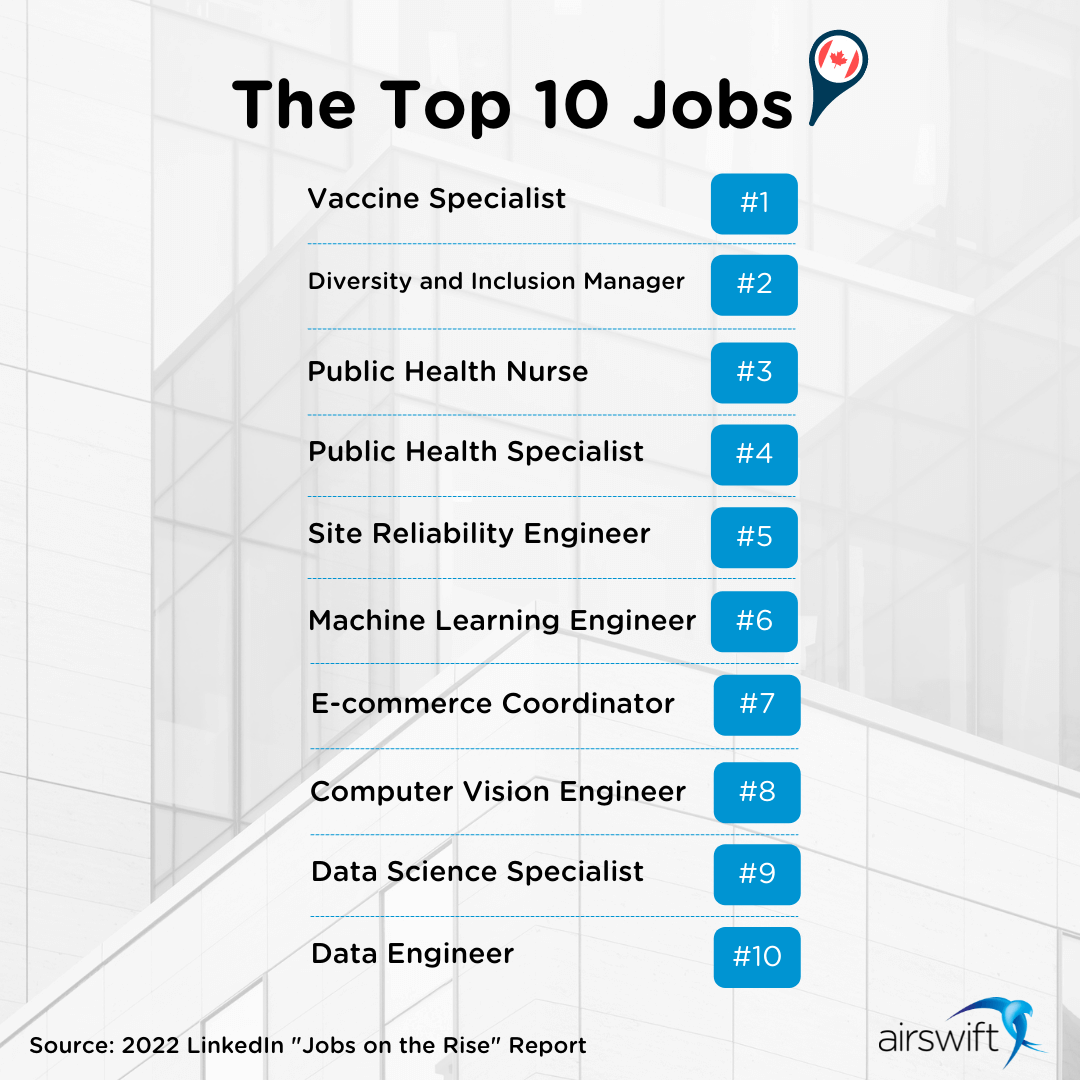How to stand out in a competitive Canadian job market
In a highly competitive Canadian job market, it can often feel like a daunting task to be noticed by potential employers. With countless resumes flooding in for every job opening, it’s essential to find ways to differentiate yourself from the crowd. In this article, we will explore some effective strategies that can help you stand out and increase your chances of landing your dream job in Canada. From honing your unique skills and experiences to building a strong personal brand, we’ll guide you through the steps to make a lasting impression on employers and secure the job opportunities you deserve.
How to Stand Out in a Competitive Canadian Job Market?
In today’s competitive job market, it’s important to develop a strong and relevant skill set to stand out from the crowd. Here are some steps you can take to enhance your chances of securing a job in Canada.

1. Develop a Strong and Relevant Skill Set
1.1 Identify in-demand skills
Research and identify the skills that are in high demand in your chosen field. Look at job postings, industry trends, and consult professionals in your field to determine the key skills sought by employers. This will help you focus your efforts and prioritize the skills you should develop.
1.2 Attend workshops and training programs
Participating in workshops and training programs is a great way to acquire new skills and stay updated with the latest developments in your industry. Look for relevant workshops and training sessions offered by reputable organizations or educational institutions. These programs can help you gain practical knowledge and demonstrate your commitment to professional development.
1.3 Pursue certifications
Certifications are a tangible way to showcase your expertise in a specific field or technology. Research certifications that are relevant to your desired job and industry, and consider pursuing them. Certifications can set you apart from other candidates and demonstrate your dedication to continuous learning.
1.4 Seek internships or volunteer opportunities
Internships and volunteer opportunities are valuable experiences that allow you to gain practical skills and industry knowledge. Look for opportunities to intern or volunteer in organizations related to your field. This will not only enhance your resume but also offer networking opportunities and the chance to showcase your abilities to potential employers.
1.5 Build a portfolio or showcase your work
Creating a portfolio or showcasing your work is crucial in fields such as design, writing, photography, and web development. Compile your best work into a professional portfolio that you can share with potential employers. A portfolio demonstrates your skills and provides tangible evidence of your abilities, making you a more attractive candidate.
2. Customize Your Resume and Cover Letter
2.1 Tailor your resume to the job posting
Every job application should be accompanied by a tailored resume that highlights your relevant skills and experiences. Study the job posting carefully and customize your resume to emphasize the qualifications and keywords mentioned. This will help your resume stand out and show that you are a good fit for the position.
2.2 Highlight relevant accomplishments and experiences
When writing your resume, focus on showcasing your relevant accomplishments and experiences. Consider including bullet points that highlight your achievements in previous roles or projects. Use quantifiable metrics whenever possible to demonstrate the impact you made in your previous roles.
2.3 Use keywords from the job description
To increase your chances of being noticed by automated applicant tracking systems, incorporate relevant keywords from the job description into your resume. These keywords are often used to identify qualified candidates, and using them will help your resume pass the initial screening process.
2.4 Personalize your cover letter for each application
While it may be tempting to use a generic cover letter for multiple applications, taking the time to personalize your cover letter can greatly enhance your chances of getting an interview. Address the specific requirements mentioned in the job posting and highlight how your skills and experiences make you a strong fit for the position.
2.5 Proofread and ensure your documents are error-free
Before submitting your resume and cover letter, proofread them multiple times to eliminate any typos or grammatical errors. Even a minor mistake can create a negative impression and diminish your chances of being considered for the position. Consider asking a friend or family member to review your documents for an extra set of eyes.

3. Leverage Networking Opportunities
3.1 Attend industry events and career fairs
Attending industry events and career fairs is a great way to network with professionals in your field. These events provide opportunities to learn about job openings, industry trends, and connect with potential employers. Be prepared with your elevator pitch and carry business cards to exchange contact information.
3.2 Join professional organizations or associations
Joining professional organizations or associations related to your field can provide valuable networking opportunities. These organizations often host events, webinars, and conferences that allow you to connect with industry leaders and build relationships with like-minded professionals.
3.3 Connect with professionals on LinkedIn
LinkedIn is a powerful tool for networking and building professional connections. Connect with professionals in your field, including alumni from your school or university, colleagues, and mentors. Engage with them by commenting on their posts and sharing relevant content. Building and nurturing relationships on LinkedIn can lead to job opportunities and referrals.
3.4 Seek informational interviews
Informational interviews offer a chance to learn about different roles and companies within your desired industry. Reach out to professionals you admire and ask if they would be willing to share insights and advice through a brief informational interview. This demonstrates your genuine interest in the industry and can lead to valuable connections and future opportunities.
3.5 Build relationships through volunteering or mentoring
Volunteering or mentoring in your field allows you to give back to the community while also building relationships with professionals in your industry. Seek opportunities to volunteer for industry-related projects or mentor aspiring professionals. These experiences not only enhance your skills but also provide networking opportunities and potential referrals.
4. Enhance Your Online Presence
4.1 Create a professional LinkedIn profile
A well-crafted LinkedIn profile is essential in today’s job market. Ensure that your profile is complete, up-to-date, and aligned with your resume. Highlight your skills, experiences, and accomplishments. Use a professional profile picture and write a concise but engaging summary that showcases your unique value proposition.
4.2 Establish a personal website or portfolio
Creating a personal website or portfolio is an effective way to showcase your work and create a strong online presence. Use this platform to provide more details about your skills, experiences, and accomplishments. Include links to your projects, blog articles, or any other relevant work samples.
4.3 Clean up your social media presence
Employers often research candidates on social media, so it’s important to ensure that your online presence is professional and reflects your best self. Review your privacy settings and remove any content that might be inappropriate or unprofessional. Use social media platforms to engage with industry-related content and share insights.
4.4 Share industry-related content on social media
Demonstrate your knowledge and passion for your industry by sharing industry-related content on social media. Create or curate content that aligns with your field and positions you as a thought leader. Engage with others by commenting on posts and starting conversations. This helps to establish your credibility and expand your professional network.
4.5 Engage in online discussions and forums
Participating in online discussions and forums related to your field is a great way to demonstrate your expertise and build relationships with industry professionals. Share your insights, ask questions, and contribute valuable information. By actively participating in these communities, you can raise your profile and make meaningful connections.

5. Demonstrate Soft Skills
5.1 Communicate effectively
Effective communication is a highly valued skill in the workplace. Develop and demonstrate strong written and verbal communication skills. Be clear, concise, and articulate in your interactions, both in person and in writing. Strong communication skills will help you stand out as a professional who can effectively convey ideas and collaborate with others.
5.2 Show adaptability and flexibility
Employers are looking for candidates who can adapt to changing circumstances and embrace new challenges. Demonstrate your ability to be flexible and open to learning and growth. Highlight instances where you have successfully adapted to new situations or taken on additional responsibilities. This showcases your versatility and willingness to go above and beyond.
5.3 Exhibit teamwork and collaboration
Collaboration is a vital skill in today’s work environment. Show that you can work effectively as part of a team by highlighting relevant experiences where you have successfully collaborated with others to achieve common goals. Provide examples that demonstrate your ability to communicate, compromise, and contribute to a team dynamic.
5.4 Demonstrate problem-solving skills
Problem-solving skills are highly valued by employers. Highlight instances where you have successfully identified and resolved challenges or conflicts. Discuss your approach to problem-solving and how you implement innovative solutions. Demonstrating your ability to think critically and find creative solutions will set you apart from other candidates.
5.5 Display a positive attitude
A positive attitude can greatly impact your interactions with colleagues and employers. Show enthusiasm and optimism in your job search and interviews. Employers seek candidates who can bring positivity and energy to the workplace. Emphasize your ability to stay motivated, even in challenging situations, to demonstrate your resilience and adaptability.
6. Gain Experience Through Internships or Co-op Programs
6.1 Research companies that offer internships or co-op programs
Research companies in your desired field that offer internships or co-op programs. Look for organizations that align with your interests and values. Consider the size, industry reputation, and opportunities for growth and mentorship within these companies.
6.2 Apply to internships or co-op positions
Once you have identified organizations that offer internships or co-op programs, apply to these positions. Tailor your application materials to highlight your relevant skills and experiences. Follow the application process carefully and submit your application before the deadline.
6.3 Gain practical experience and develop industry contacts
Internships and co-op programs provide valuable opportunities to gain practical experience and develop industry contacts. Make the most of your time in these programs by taking on challenging projects, seeking feedback, and building relationships with colleagues and supervisors. This experience can open doors to future job opportunities and references.
6.4 Leverage your internship/co-op experience in job applications
When applying for full-time roles, leverage the experience and skills you gained during your internships or co-op programs. Highlight specific projects, accomplishments, and skills that you developed during this period. This demonstrates your practical knowledge and makes you a stronger candidate.
6.5 Seek feedback and recommendations from supervisors
At the end of your internship or co-op program, seek feedback and recommendations from your supervisors. This feedback can help you improve and grow professionally. Additionally, positive recommendations from supervisors can be valuable assets when applying for future positions.

7. Continuously Update Your Skills and Knowledge
7.1 Stay informed about industry trends
Stay up-to-date with the latest developments and trends in your industry. Subscribe to industry newsletters, blogs, and publications to keep yourself informed about advancements and changes. Being knowledgeable about industry trends demonstrates your commitment to professional growth.
7.2 Attend workshops, seminars, and conferences
Continuing education is crucial for professional growth. Attend workshops, seminars, and conferences to enhance your skills and learn from industry experts. Take advantage of these learning opportunities to stay ahead and acquire new knowledge.
7.3 Take online courses or pursue further education
Online courses and further education programs provide accessible options for expanding your knowledge and acquiring new skills. Look for courses or programs offered by reputable institutions that are relevant to your field. These courses can provide you with a recognized credential and demonstrate your commitment to ongoing learning.
7.4 Read industry publications and books
Read industry publications, books, and articles to deepen your knowledge and gain insight into industry best practices. Stay current on emerging trends and thought leadership within your field. Sharing relevant articles on your online platforms can also help position you as a knowledgeable professional.
7.5 Seek mentorship or coaching
Seeking mentorship or coaching can provide valuable guidance and support in developing your career. Identify experienced professionals in your field who can offer insights and advice. Engage in mentorship programs or seek out coaching opportunities to gain valuable perspectives and learn from their experiences.
8. Be Prepared for Job Interviews
8.1 Research the company and position
Before an interview, research the company thoroughly to gain a deep understanding of its values, mission, and culture. Familiarize yourself with the job description and requirements to ensure you can speak to how your skills and experiences align with the position.
8.2 Practice common interview questions
Practice answering common interview questions to build confidence and ensure you can articulate your experiences and qualifications effectively. Prepare concise and compelling responses that highlight your strengths and accomplishments. Consider participating in mock interviews or seeking feedback from trusted individuals to refine your responses.
8.3 Prepare specific examples and stories
Prepare specific examples and stories that demonstrate your skills and experiences. Use the STAR method (Situation, Task, Action, Result) to structure your responses and provide concrete examples that illustrate your abilities. Tailor your examples to align with the skills and qualities sought by the employer.
8.4 Dress professionally and present yourself well
Dress professionally for the interview to make a positive impression. Ensure your outfit is appropriate for the company culture and industry. Pay attention to personal grooming and hygiene to present yourself in the best possible light. Confidence and professionalism in your appearance can help you stand out.
8.5 Follow up with a thank-you email or note
After the interview, send a thank-you email or note to express your gratitude for the opportunity to interview. This small gesture demonstrates your professionalism and appreciation. Use this opportunity to reiterate your interest in the role and highlight any key points you may have missed during the interview.

9. Consider Volunteering or Freelancing
9.1 Identify volunteering or freelance opportunities in your field
Consider volunteering or freelancing in your field to gain experience and showcase your skills. Look for opportunities that align with your interests and allow you to contribute meaningfully. Volunteer work and freelance projects can be valuable additions to your resume and demonstrate your commitment to your chosen field.
9.2 Offer your skills and expertise to organizations
Reach out to organizations or community groups that may benefit from your skills and expertise. Offer your services as a volunteer or freelancer, showcasing how your skills can contribute to their mission or goals. This not only allows you to give back but also exposes you to new experiences and potential job opportunities.
9.3 Network and build connections through volunteering
Volunteering provides an excellent opportunity to expand your professional network. Connect with other volunteers, staff members, and organizations related to your volunteering activities. Engage in conversations, seek advice, and participate in networking events to build meaningful connections.
9.4 Showcase your volunteering or freelance experience on your resume
When applying for job opportunities, don’t forget to highlight your volunteering or freelance experience on your resume. Employers value candidates who have contributed to the community or gained practical experience outside of traditional work settings. Emphasize the skills you developed and the impact you made through your volunteer or freelance work.
9.5 Expand your professional network
Networking is essential for career growth and job search success. Take advantage of networking opportunities offered through your volunteering or freelancing activities. Attend industry events, join online communities, and actively engage with professionals in your field. Building relationships and fostering connections can lead to valuable job opportunities.
10. Remain Resilient and Persistent
10.1 Stay positive and motivated
In a competitive job market, it’s essential to maintain a positive mindset and stay motivated throughout the job search process. Job hunting can be challenging, but remaining optimistic and focused on your goals can make a significant difference in the long run.
10.2 Learn from rejection and improve
It’s common to face rejection during the job search process. Instead of becoming discouraged, view rejection as an opportunity to learn and improve. Seek feedback when possible and identify areas for growth and development. Use rejection as a motivation to refine your approach and become an even stronger candidate.
10.3 Seek feedback and implement changes
Whenever possible, seek feedback from recruiters, hiring managers, or interviewers. Constructive feedback can provide valuable insights and help you refine your job search strategy. Implement the suggested changes to enhance your skills, resume, or interview performance.
10.4 Stay organized and track your applications
To stay organized during your job search, create a system for tracking your applications, interviews, and follow-ups. This will ensure that you don’t miss any deadlines or lose track of important details. Utilize spreadsheets, calendars, or specialized job search tools to manage your progress effectively.
10.5 Keep exploring new opportunities
Remain open to new opportunities and continue exploring different avenues for job search. Be proactive in seeking out potential job openings, networking events, or professional development opportunities. Embrace new challenges and don’t limit yourself to a specific role or company. By remaining flexible and adaptable, you maximize your chances of finding the right job.
In conclusion, standing out in a competitive Canadian job market requires a combination of relevant skills, customized application materials, networking, continuous learning, and resilience. By following these steps and staying proactive in your job search, you can position yourself as a strong candidate and increase your chances of success. Good luck!






